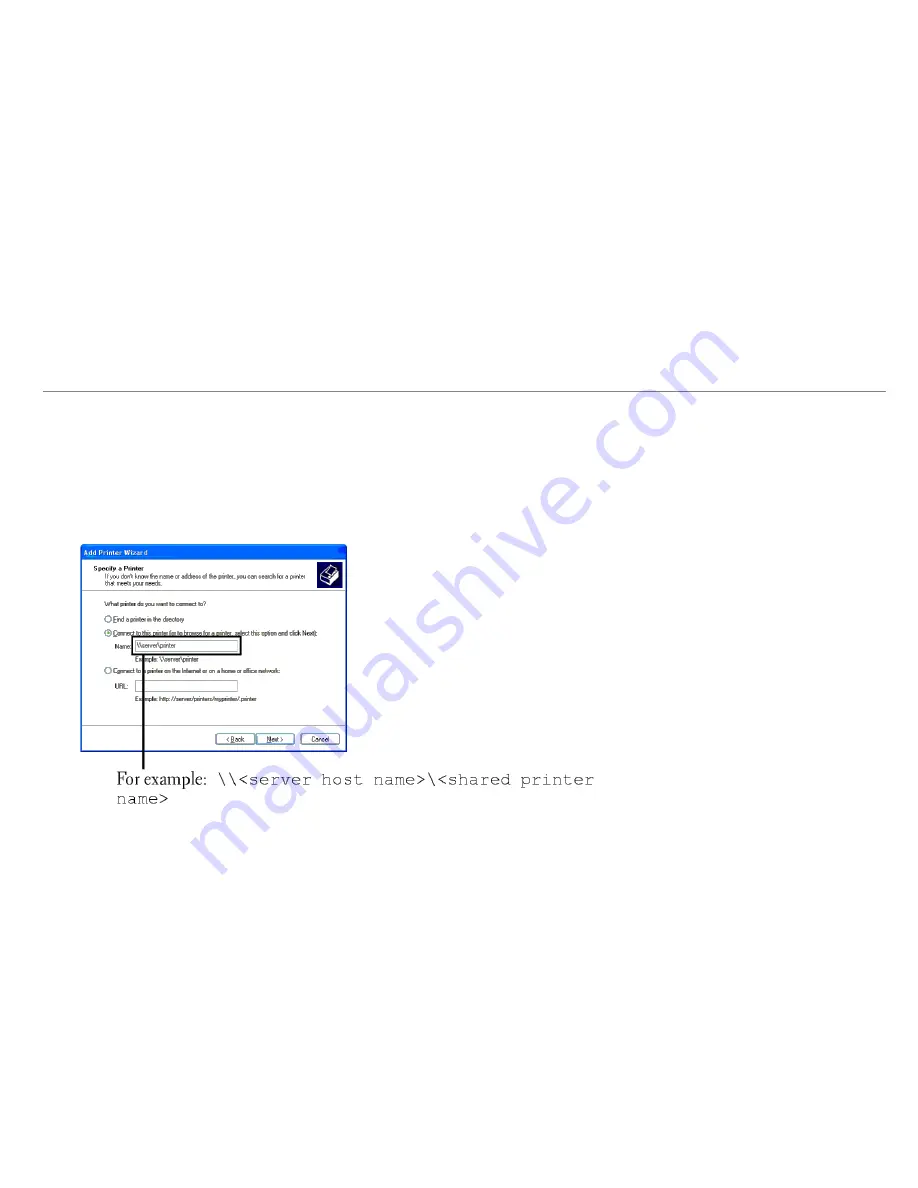
4. Click
Install driver
.
5. Wait for the driver information to copy from the server computer to the client computer, and for a new printer object to be added to the
Devices and Printers
folder. The time this takes varies, based on network traffic and other factors.
6. Print a test page to verify installation.
a. Click
Start
®
Devices and Printers
.
b. Right-click the printer you just created and select
Printer properties
.
c. From the
General
tab, click
Print Test Page
.
When a test page prints successfully, installation is complete.
Peer-to-Peer
If you use the peer-to-peer method, the printer driver is fully installed on each client computer. Network clients retain control of driver modifications. The client computer handles the print job processing.
Windows XP, Windows XP 64-bit Edition, Windows Server 2003, Windows Server 2003 x64 Edition, Windows 2000, Windows NT 4.0
1. Click
start
®
Printers and Faxes
(
Printers
for Windows 2000).
2. Click
Add a Printer
to launch the
Add Printer
wizard.
3. Click
Next
.
4. Select
A network printer, or a printer attached to another computer
, and then click
Next
(For Windows 2000, select the network printer from the
Shared printers
list). If the printer is not listed, type in the path of the printer in the text box.
The server host name is the name of the server computer that identifies it to the network. The shared printer name is the name assigned during the server installation process.
5. Click
Browse for a printer
, and then click
Next
(For Windows 2000, click
OK
).
If this is a new printer, you may be prompted to install a printer driver. If no system driver is available, then you will need to provide a path to available drivers.
6. Select whether you want this printer to be the default printer for the client, click
Next
, and then click
Finish
(For Windows 2000, click
Finish
).
7. Print a test page to verify installation:






























